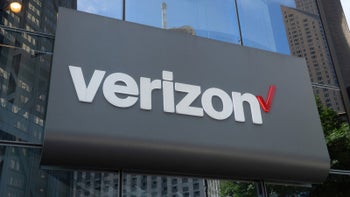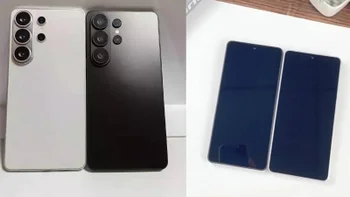T-Mobile CEO Legere has a message to those "haters" opposed to the merger with Sprint

T-Mobile is still awaiting Justice Department approval for its proposed $26.5 billion merger with Sprint. And for T-Mobile CEO John Legere, the deal brings back memories of the carrier's merger six years ago with pre-paid provider MetroPCS. As the executive pointed out in a video released today, "the same group of people are making the same ridiculous arguments" against the T-Mobile-Sprint deal that they made against the T-Mobile-MetroPCS transaction.
A merged T-Mobile-Sprint will put more pressure on Verizon and AT&T
After the merger closed, the MetroPCS name did not go away as critics had thought. Instead, the unit, now called Metro by T-Mobile, is thriving. The brand is offered in 77 markets up from 17 at the time the transaction closed. The number of stores increased from 4,500 to more than 10,000 nationwide as the number of Metro customers rose from 8.9 million to 19 million. And similar to today, when the Communication Workers of America (CWA) says that the T-Mobile-Sprint merger will lead to huge job losses, unions also believed the same thing about the T-Mobile-MetroPCS deal. But combining the latter two firms led to the creation of "tens of thousands of new jobs" according to Legere. And while MetroPCS customers had a limited choice of handsets to purchase before T-Mobile bought the company, today the pre-paid carrier offers many of the "hottest" new Android and iOS phones.
"There are opposition groups fueling the rhetoric and the lies with say, less than pure motives. They're scared about a more powerful new T-Mobile. They're scared of more competition and they should be. The other guys are gonna say whatever they can to try and kill this merger. We don't plan to let that happen. This merger is good for consumers period."-John Legere, CEO, T-Mobile
The Department of Justice is concerned that eliminating one of the four major U.S. carriers will lead to less competition for wireless services in the states. As we've pointed out a number of times, it would seem to us that a merged T-Mobile-Sprint would put even more pressure on Verizon and AT&T. After all, T-Mobile is the fastest growing of the four majors right now. And T-Mobile's 600MHz low-frequency spectrum meshes well with Sprint's huge inventory of mid-range 2.5GHz airwaves.
Last week, a report indicated that DOJ antitrust chief Makan Delrahim would approve the T-Mobile-Sprint merger if the two wireless providers help create a new carrier to replace Sprint. Both companies are also open to divesting some of their wireless spectrum and have already agreed to sell Sprint's Boost Mobile prepaid unit. That led to further speculation that Amazon is interested in buying Boost. The latter is believed to have 7 to 8 million subscribers and analysts say the division could be sold for as much as $4.5 billion if wireless spectrum is included in the deal. A company like Amazon could quickly build up Boost and might satisfy the DOJ's request for a new competitor in the industry.
Follow us on Google News













Things that are NOT allowed:
To help keep our community safe and free from spam, we apply temporary limits to newly created accounts: